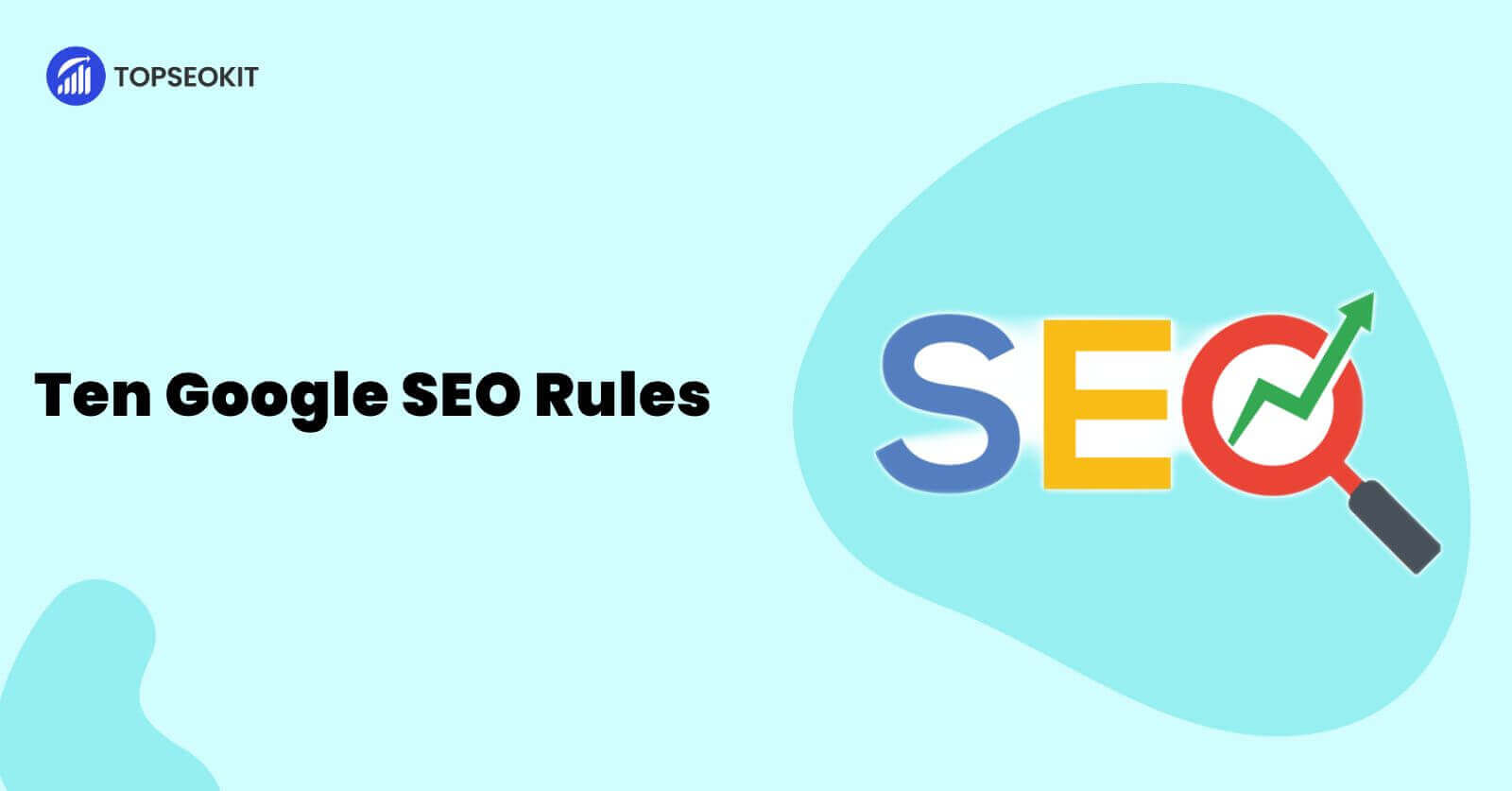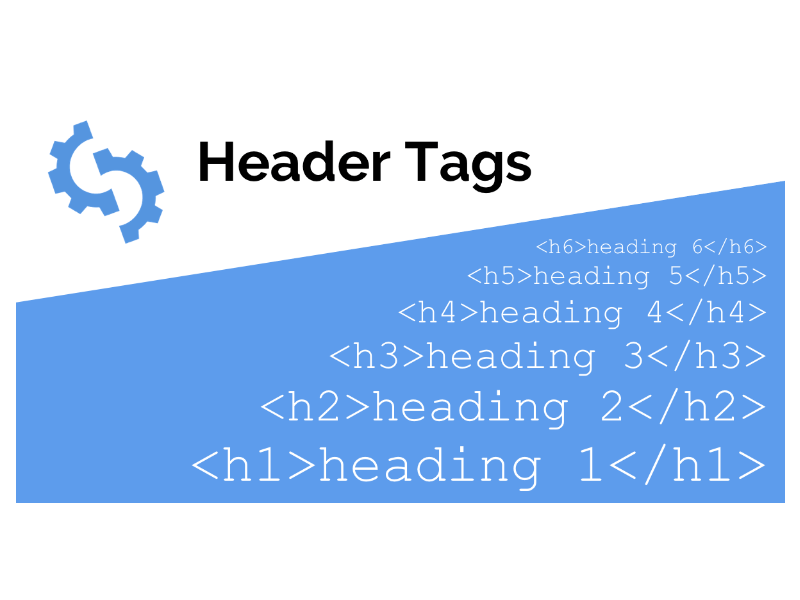
10 Google SEO Rules Every Marketer Should Know in 2023
Learn about top 10 Google SEO rules to ace your SEO strategy!
Search Engine Optimization plays a crucial role in digital marketing as it helps businesses improve their online visibility and attract organic traffic from search engines. Among the various search engines, Google holds over 90% of the market share, making it the dominant player in the field. To effectively optimize websites for Google, it’s essential for marketers to understand Google’s SERP and follow Google’s SEO rules.
In this article, we will discuss 10 important Google SEO rules that every marketer should know to achieve better search rankings and drive targeted organic traffic.
10 Google SEO Rules Every Marketer Should know
Rule 1: Relevant and High-Quality Content

Content is the foundation of SEO, and Google places a high emphasis on relevant and creating high-quality content that satisfies user intent. It’s important to create content that is valuable, engaging, and relevant to the target audience. Conducting thorough keyword research and using relevant keywords in the content is crucial for SEO success. However, it’s important to avoid bad seo practices such as keyword stuffing, which is the excessive use of keywords in an attempt to manipulate search rankings. Google values content that provides value to users, answers their queries, and offers a seamless reading experience.
Rule 2: User-Friendly Website Design and Navigation

User experience (UX) is a critical factor in SEO, and Google considers websites with a user-friendly design and navigation to be more valuable to users. A responsive website design that adapts to different screen sizes and devices is essential for a positive user experience. Intuitive navigation, easy-to-use URLs, and a clear website structure help users find the information they are looking for quickly and easily. Properly optimizing website architecture, URL structure, and using breadcrumbs can also help search engines understand the website’s content and structure, leading to improved search rankings.
Rule 3: Ethical Link Building

Building high-quality and authoritative backlink profile is an important SEO practice. However, it’s crucial to follow ethical link building practices as per Google’s guidelines. Avoiding paid links, link farms, and link schemes is essential to prevent potential penalties from Google. Instead, focus on earning natural, relevant, and diverse backlinks from authoritative websites. This can be achieved through outreach, guest blogging, creating valuable and shareable content, and building relationships with influencers and industry experts.
Related Read: Should You Buy Backlinks in 2023?
Rule 4: Mobile-Friendly Website

With the increasing use of mobile devices for internet browsing, having a mobile-friendly website is no longer optional but a necessity for SEO. Google has implemented mobile-first indexing, which means that the mobile version of a website is considered the primary version for indexing and ranking. Therefore, it’s crucial to have a responsive design that provides a seamless user experience across different devices. Optimizing content for mobile, ensuring fast-loading pages, and implementing mobile-specific features like AMP (Accelerated Mobile Pages) can further enhance the mobile-friendliness of a website and improve its search rankings.
Rule 5: Proper Use of Meta Tags

Meta tags, including title tags, meta descriptions, and header tags, play a significant role in SEO. Title tags are displayed as the clickable headline in search results, while meta descriptions provide a brief summary of the page’s content. Header tags (H1, H2, H3, etc.) structure the content and provide hierarchy. Properly optimizing these meta tags is crucial for improving search visibility. This includes using relevant keywords, crafting unique and compelling tags, and avoiding over-optimization. Creating meta tags that accurately describe the content and encourage click-throughs from search results can lead to higher click-through rates and better search rankings.
Rule 6: Fast Website Loading Speed

Website loading speed is not only important for user experience but also for SEO. Google considers fast-loading websites as more valuable to users and tends to rank them higher in search results. Optimizing website performance includes compressing images, minifying CSS and JavaScript files, leveraging browser caching, and using a content delivery network (CDN) to distribute website content across multiple servers. Regularly monitoring and optimizing website loading speed can improve user engagement, reduce bounce rates, and increase the chances of ranking higher in Google search results.
Rule 7: Proper Use of Header Tags

Header tags (H1, H2, H3, etc.) are used to structure the content of a webpage and provide hierarchy. Properly using header tags can make it easier for search engines to understand the content and structure of a webpage. The H1 tag should be used for the main headline or title of the page, while H2, H3, and other header tags can be used for subheadings and sections within the content. Using relevant keywords in header tags can also help improve search visibility, but it’s important to avoid over-optimization and ensure that the header tags accurately reflect the content of the page.
Rule 8: Optimized URL Structure

The URL structure of a webpage is another important SEO factor that can impact search rankings. URLs should be concise, descriptive, and easy to read. Including relevant keywords in the URL can help search engines and users understand what the page is about. It’s also important to use hyphens (-) to separate words in the URL, as this makes it more readable for both search engines and users. Avoid using special characters, numbers, and excessive parameters in the URL, as they can create confusion and negatively impact SEO.
Rule 9: Secure Website with HTTPS

Website security is a critical factor in SEO, and Google gives preference to websites that use HTTPS (Hypertext Transfer Protocol Secure) over HTTP (Hypertext Transfer Protocol). HTTPS encrypts the data transmitted between a user’s browser and the website, providing a secure and private browsing experience. Implementing HTTPS on a website can help build trust with users and protect their sensitive information, such as credit card details and personal data. Google also considers HTTPS as a ranking signal, which means that websites with HTTPS tend to rank higher in search results compared to websites with HTTP.
Rule 10: Regular Monitoring and Optimization

SEO is an ongoing process, and it’s important to regularly monitor and optimize websites to ensure they continue to perform well in search results. Monitoring website analytics, SEO rankings, and user behavior can provide insights into areas that need improvement. Regularly updating and optimizing content, fixing broken links, improving website loading speed, and keeping up with Google’s algorithm updates can help maintain and improve search visibility. Staying informed about the latest trends, techniques, and best practices is also essential to stay ahead of the competition and ensure continued SEO success.
For more clear understanding lets go through this video:
Conclusion:
Google SEO rules are constantly evolving, and it’s important for marketers to stay updated and follow these rules to achieve better search rankings and drive targeted traffic. From creating relevant and high-quality content to optimizing website design, navigation, meta tags, URL structure, and website performance, there are several key SEO rules that every marketer should know and implement. Ethical link building, mobile-friendliness, website security, and regular monitoring and optimization are also crucial factors for SEO success. By following these Google SEO rules, marketers can improve their online visibility, attract more organic traffic, and achieve better results from their digital marketing efforts.
FAQs
How long does it take to see results from SEO efforts?
SEO is a long-term strategy, and it can take several months to see noticeable results. It depends on various factors such as the competitiveness of the industry, the current state of the website, the level of optimization, and the consistency of efforts. It’s important to be patient and continue implementing SEO best practices consistently for sustainable results.
Can I optimize my website for multiple keywords?
Yes, it’s possible to optimize a website for multiple keywords. However, it’s important to prioritize and target relevant keywords that align with the content and purpose of each page. Trying to optimize a single page for too many keywords can dilute the effectiveness of SEO efforts. It’s important to conduct thorough keyword research and create high-quality, targeted content for each keyword.
Is link building still important for SEO?
A: Yes, link building is still an important aspect of SEO. However, it’s important to focus on quality rather than quantity. Building high-quality, authoritative, and relevant backlinks from reputable websites can help improve search rankings and increase organic traffic. Avoid unethical practices such as buying links or engaging in link schemes, as they can result in penalties from Google.
Do I need to optimize my website for mobile devices?
Yes, optimizing a website for mobile devices is crucial for SEO. With the increasing use of mobile devices for browsing, Google prioritizes mobile-friendly websites in its search results. Websites that are not mobile-friendly may face lower rankings and reduced visibility. It’s important to ensure that the website is responsive, loads quickly on mobile devices, and provides a seamless user experience.
How often should I update my website content?
Regularly updating website content is important for SEO. Fresh, relevant, and high-quality content can help improve search rankings and attract more organic traffic. It’s recommended to create a content calendar and update the website with new content, blogs, articles, and other relevant information regularly. However, it’s also important to focus on quality rather than quantity and ensure that the content is valuable and engaging to users.
Explore More:
The Ultimate Guide To Pinterest Algorithm
What Is Edge SEO & Why You Should Adopt It
DIY SEO Tools: Boost Your Website’s Online Visibility in 2023
Let’s dive in! Get started for free
